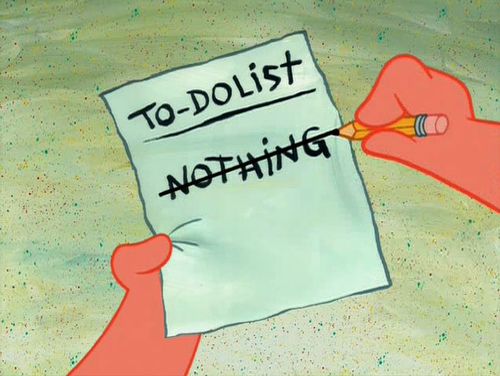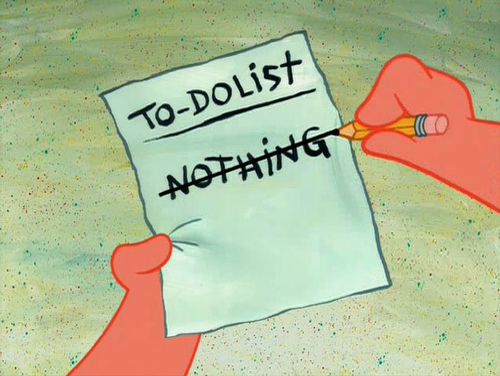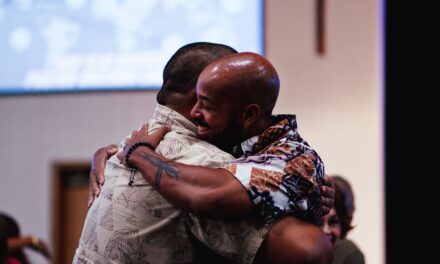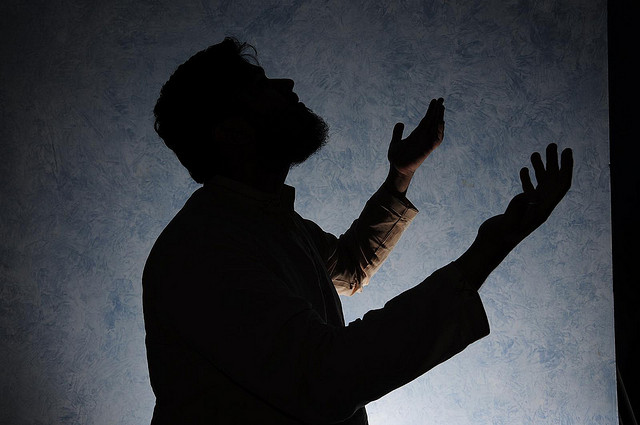 Nothing is bad. Nothing is insignificant. — This is what we’re told. But “nothing” has so much more to that. Grammatically, nothing is something. “Blake gave Cathy nothing for Christmas.” What something did Blake give Cathy? Nothing. “Nothing is in the jar.” What is the something in the jar? Nothing. It’s as if emptiness is being given or put in a jar. So what is good about nothing?
Nothing is bad. Nothing is insignificant. — This is what we’re told. But “nothing” has so much more to that. Grammatically, nothing is something. “Blake gave Cathy nothing for Christmas.” What something did Blake give Cathy? Nothing. “Nothing is in the jar.” What is the something in the jar? Nothing. It’s as if emptiness is being given or put in a jar. So what is good about nothing?
Interestingly, Saint Ignatius’ Suscipe prayer asks God for the something of nothing:
Take, O Lord, and receive all my liberty, my memory, my understanding and my entire will. Whatsoever I have and hold, You have bestowed upon me as untold gift. To You, O Lord, I return it. I surrender all to be governed wholly according to Your will. Give me Your love and grace. With these alone I shall be rich enough and desire nothing more.
This is a prayer of emptying. The pray-er first asks God to empty him or herself so he or she can receive God’s love and grace — but then, at the end, is the request for “nothing more”, an emptiness. Why would someone ask God for nothing? Nothing is something that can be filled. The spiritual life in many ways is about an emptying that creates a space for God to fill. We empty ourselves of false desire, disordered attachments, and unhealthy ways in order to be filled with God’s love and grace. Our desire should be for “nothing more”. The more of this is the grace that comes in God’s time. And Saint Ignatius has no doubt that gifts from God are never far away. After all, God is constantly pouring them out onto us. How can they be poured into a cup that is full?
John of the Cross speaks about the nothingness of darkness, that which allows the light of the Creator to fill. Darkness, nothing, pain, desolation, are all—in a mathematical sense—negatives (-) that can be filled with the positives (+) that come from God: light, love, peace, consolation.
“He went out again to the marketplace at nine o’clock and saw some men standing there doing nothing.” (Matthew 20:3)
 Nothingness can filled. The men standing in the marketplace did not seek to fill their time in unproductive and unhealthy ways. They desired work but in that moment their desire was emptiness so the gift of work could fill it. And perhaps in that moment it felt more of a void. Perhaps the men felt down on themselves for not having work, fearful of not being able to feed their families. But they had the courage to bring their nothingness out into the open, to let it be vulnerable for the chance of something. And then Jesus came along…
Nothingness can filled. The men standing in the marketplace did not seek to fill their time in unproductive and unhealthy ways. They desired work but in that moment their desire was emptiness so the gift of work could fill it. And perhaps in that moment it felt more of a void. Perhaps the men felt down on themselves for not having work, fearful of not being able to feed their families. But they had the courage to bring their nothingness out into the open, to let it be vulnerable for the chance of something. And then Jesus came along…
“… so he told them, ‘You also go and work in the vineyard, and I will pay you a fair wage.'” (Matthew 20:4)
Jesus saw the men’s emptiness and desired to fill it, to give them work. Nothing should not be an absence of God, but rather an inviting space for God to fill. That space can be filled with evil and bad, but only if we allow it. Instead we ought to remain in the freedom of the emptiness, the blank slate, the possibility. John of the Cross said, “Desolation is a file, and the endurance of darkness is preparation for great light.” We can only receive if we’re first emptied.
“Nothing” In Prayer
In the musical A Chorus Line, Diana Morales, one of the characters auditioning for the show, shares about an acting class she was in. The teacher tries to get the students to improvise and pretend they’re on a bobsled.
Ev’ry day for a week we would try to
Feel the motion, feel the motion
Down the hill.
Ev’ry day for a week we would try to
Hear the wind rush, hear the wind rush,
Feel the chill.
But for Diana, she felt nothing. The kind of exercise her acting teacher was putting them through was very much like Ignatian contemplation, getting in touch with the feelings and the senses as you imagine a scene. The second week Diana had to pretend to be a table, a sports car, and an ice cream cone. Again, she felt nothing. So she went to church and prayed to Mary asking her to help her feel it. Then a voice from within her soul came out and said:
This man is nothing!
This course is nothing!
If you want something,
Go find another class.
This song may not give much hope to imaginative prayer, but perhaps Mary was being to Diana what Ignatius would ask a spiritual director to be. It was clear for Diana that imagining her feelings and senses in a scene didn’t work for her. Ignatius instructs spiritual directors (and those praying) to use what prayer methods are helpful and to let go of what isn’t. The 17th Annotation of the Spiritual Exercises says this:
It is very helpful that he who is giving the Exercises, without wanting to ask or know from him who is receiving them his personal thoughts or sins, should be faithfully informed of the various movements and thoughts which the different spirits put in him. For, according as is more or less useful for him, he can give him some spiritual Exercises suited and adapted to the need of such a soul so acted upon.

For Diana, feeling nothing after weeks of trying seemed to have been a clear sign that improv acting was not for her. In the spiritual life we also must use prayer methods or spiritual practices to the extent that they work for us. Nothing for Diana was a chance to discover another form of acting or another class. A prayer where we feel nothing can either be a time to sit with the nothingness and invite God to fill it as God pleases or it may also prompt us to try another method of prayer.
Nothing is unexpected. It’s exciting. It’s emptying, but it’s spacious and ready to be filled.
Listen to an audio version of this post…
Music by Kevin MacLeod









Interesting..! what man sees as not a good thing or no thing can become something in God
I love this…reminds me of ‘how difficult it is for a rich man to enter the kingdom of God”…